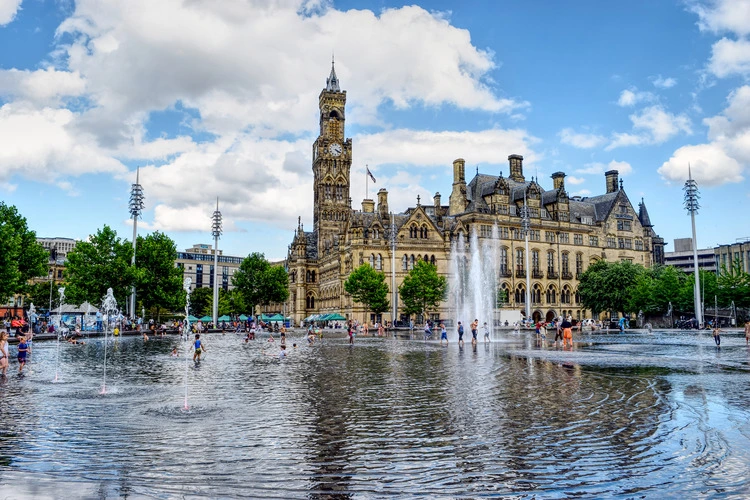
£75 million city-wide heat network in Bradford set to reduce city carbon emissions from heat by 80 per cent and tackle air pollution
By
Thirty-seven per cent of Britain’s total carbon emissions come from heating. And as cities, town councils, universities and other organisations grapple with net-zero targets –which often include stipulations to shift away from traditional fossil-fuel-reliant sources of heating such as traditional boilers – a new project in Bradford may offer a blueprint to help key these players transition toward a greener future.
The project – dubbed the Bradford Energy Network – is new major heat network set to be developed in the city to help tackle both carbon emissions and air pollution.
Enjoying this article? Check out our related reads:
During the first phase of the Bradford Energy Network, it is estimated that the city will reduce its carbon emissions from heat by 80 per cent, and reduce other forms of air pollution from heating by 75 per cent.
Developed by the country’s leading low-carbon city heat network developer, 1Energy, the £75 million project is also being signed up to by the University of Bradford, Bradford College and Bradford Courts. Collectively, these organisations are estimated to save 29,780 tonnes of carbon dioxide – equivalent to taking more than 21,000 cars off the road – over a twenty-year period through being part of the heat network.
Such an approach – making a heat network as opposed to individual companies or businesses using heat pumps – allows for both a rapid and economically-viable way of scaling-up. Connecting others to the network is, according to the project, the lowest-cost way to reduce carbon emissions since both upfront and operational costs are significantly lower than installing building-level heat pumps.

This low-carbon, low-cost alternative to traditional fossil fuel-powered heating isn’t confined to the borders of Bradford, though. Over the next eight years, 1Energy plan to deploy a further £1 billion into advancing the scope of these heat networks, building them in other cities across the UK.
While the major benefits to reap are environmental, diversifying the UK’s energy away from gas for heating will bolster the country’s energy security, as well as protect organisations from financial squeezes if gas prices were to fluctuate.
‘The project is already delivering significant social value and wider benefits to the city – creating new jobs and skills, utilising the local supply chain and creating a more favourable environment for inward investment into Bradford,’ said CEO of 1Energy Andrew Wettern.
‘Thanks to the support of our key partners, we are able to put Bradford right at the very forefront of decarbonised, healthier cities in the UK and to assist its regeneration and growth.’




